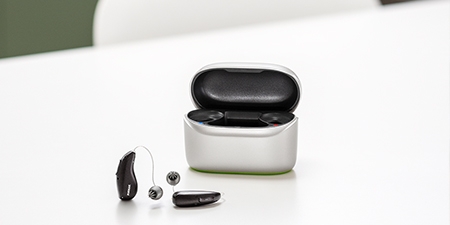7 Simple Ways to Relieve Stress Tinnitus

7 Simple Ways to Relieve Stress Tinnitus
15 min
Published July 30, 2025
If you suffer from tinnitus, otherwise known as ringing in the ear, you are probably eager to find a way to eliminate the annoying sounds. While getting rid of the condition is not particularly easy, there are effective ways to help alleviate your symptoms. However, keep in mind that treatment depends on the cause of tinnitus, which can be numerous. For instance, research has linked tinnitus to stress and anxiety. Not only can tinnitus cause stress, but stress can also induce tinnitus. While it is easy to understand how constant ringing in the ear can increase someone's stress level, chronic stress may well be the root cause of developing tinnitus.
What is tinnitus, and how common is it?
Although it is difficult to know precisely how many people are affected by tinnitus, the National Institute of Deafness estimates around 25 million Americans or 10% of the adult population, experience tinnitus in one form or another
The hallmark symptom of tinnitus is ringing in the ear, but it can also be swooshing, buzzing, clicking, or some other high-pitched or low-pitched sound. The most frustrating part of the condition is that others cannot hear the sounds you hear, leading to confusion and even depression.
What does the research say about stress and tinnitus?
Multiple studies found a direct correlation between tinnitus severity, stress severity, and stress duration. In simple terms, people with the most severe stress typically had the most severe form of tinnitus or have suffered from tinnitus the longest.
On the flip side, studies also found a causal link between stress and the development and progression of tinnitus. For example, in a 2015 study titled, “Stress and Tinnitus”, 54% percent of tinnitus patients reported that their tinnitus began during a particularly stressful period. In addition, 53% also reported the worsening of their condition under increased stress.
So how does one alleviate stress-related tinnitus?
Reduce your stress level: This advice should not come as a surprise, considering that we are talking about finding relief from a condition triggered or worsened by stress. Logically, if you focus on finding ways to reduce your stress level, your tinnitus should improve as well.
If you have not tried mindfulness-based stress reduction (MBSR), it is certainly worth exploring. MBSR - an eight-week mindfulness training program created by Jon Kabat-Zinn in 1979 - was initially created to help chronically ill patients who did not respond well to traditional treatments. The program is often used for general stress reduction and effectively addresses chronic pain, anxiety, and depression.
Try to distract your attention: Having a constant buzzing or ringing in the ear can be very impairing. By making a conscious effort to distract your attention from the sound can be incredibly helpful in finding temporary relief. Spending more time on activities you enjoy - art, sports, or other recreational activities - can go a long way. When your attention is focused on other things, your tinnitus-related symptoms should improve.
Use background sounds: Listening to music or other sounds, such as radio or TV, can be very helpful. When you play external sounds at low volume, it can block out any internal sounds you may be hearing. Sound masking can cover the tinnitus-related sounds, while more advanced therapies can provide more robust relief.
Explore Sound therapies: Sound therapy uses external noise to change a patient's perception of tinnitus. While sound therapies do not cure the condition, they can reduce the intensity. Many devices provide different levels of sound therapy and generic background noise.
Explore Sound Therapies
Movement, exercise, and sport: We all know movement and exercise are excellent ways to reduce stress. So, naturally, such activities are also effective at decreasing the root cause of stress-related tinnitus. Almost any form of exercise can act as a stress reliever. Movement can boost your endorphins and distract you from your daily stressors.
Relaxation and mindfulness practices: Relaxation techniques are designed to get you out of stress mode, slow your breathing, lower your blood pressure and reduce your heart rate. While many people compare relaxation techniques to cognitive behavioral therapy, the two are not the same.
Some of the most common relaxation techniques are breathing exercises, progressive relaxation, visualization, self-hypnosis, autogenic training, and biofeedback-assisted relaxation.
Avoid tinnitus triggers: Coffee, nicotine, chocolate, alcohol, and sugary drinks can make tinnitus worse. Alcohol, in particular, is a bad idea because it increases blood pressure and worsens your symptoms. Other triggers are loud noise, earwax, congestion, high or low blood pressure, some medications, sleep issues, and salt.
Avoid tinnitus triggers: Coffee, nicotine, chocolate, alcohol, and sugary drinks can make tinnitus worse. Alcohol, in particular, is a bad idea because it increases blood pressure and worsens your symptoms. Other triggers are loud noise, earwax, congestion, high or low blood pressure, some medications, sleep issues, and salt.
Get a Tinnitus Counseling from AudioNova
If you hear annoying ringing in your ears or have hearing loss, it is best to get your ears checked out by an audiologist. Book an appointment at one of AudioNova's Hearing Centers for a free hearing test. You will receive professional assistance and advice from our hearing specialists, who will be happy to select with you the hearing solution that best suits your hearing needs and lifestyle.




